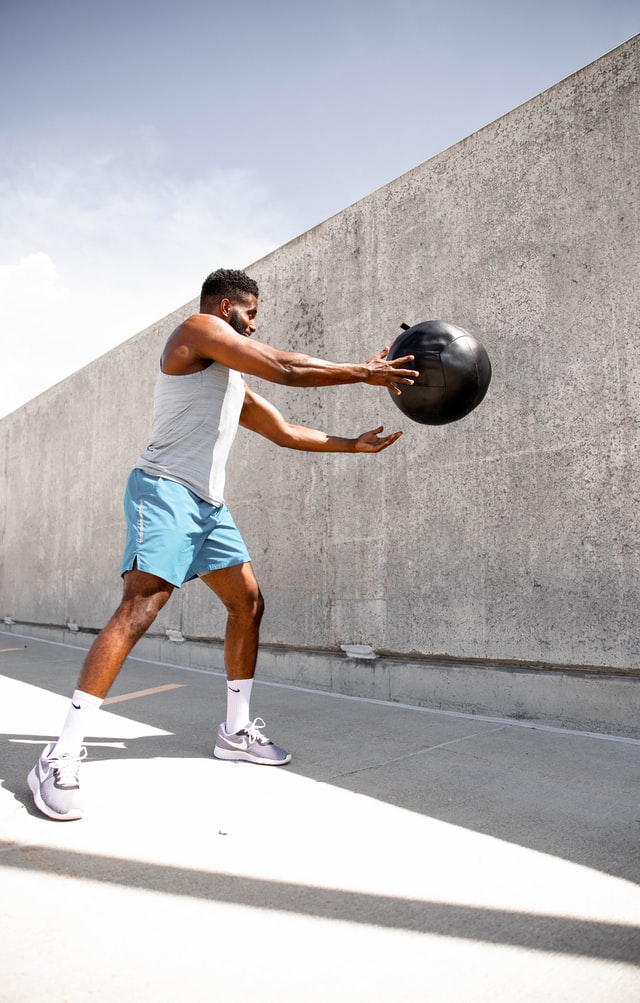


While there’s nothing inherently wrong with indulging in a glass of wine or catching up over drinks with friends, doing so while training can take a greater toll on your body than you may think. Does alcohol really affect your sleep? Can alcohol be one of the factors causing muscle fatigue and inflammation? The short answer is yes. While the conversation surrounding this is nuanced, see below as we discuss the connection between alcohol consumption and muscle inflammation.
Alcohol And Sleep Disruption:
I think something that we can all agree on is that sleep is vital. It allows us to recover from the mental and physical exhaustion that occurs in our daily activities. According to a 2015 study that focuses on the effects of alcohol and sleep quality, sleep is a time when your body regenerates, which helps with memory, muscular development, and energy. The American Academy of Sleep Medicine and Sleep Research Society recommends that adults aged 18-60 years sleep at least seven hours each night to promote optimal health and wellbeing . Sleeping less than seven hours per day is associated with an increased risk of developing chronic conditions like obesity, diabetes, high blood pressure, heart disease, stroke, and frequent mental distress.
It’s often thought that the presence of alcohol can help us fall asleep faster, but that couldn’t be further from the truth. After drinking, our livers are working incredibly hard at metabolizing the alcohol in our systems. This disrupts REM and deep sleep, which is paramount for recovery and restoration. Not only that, but heavy drinking can also contribute to an impaired gut and a liver that doesn’t function properly.
Alcohol And Muscle Inflammation:
Aside from the not-so-great sleep, you may also begin to notice that your body is tight, swollen, and tender. You may even notice that you’re experiencing more pain than usual, all of which are signs of inflammation. While the effects of alcohol on athletic performance vary depending on quantity, type of exercise, and demographics, it can be challenging to give specific recommendations. However, from an athletic standpoint, the acute use of alcohol can directly influence decreased motor skills, impaired balance, hydration, aerobic performance, as well as various facets of the recovery process. Not only can this curb performance, but it also puts you at a higher risk for injury if you aren’t mentally and physically as sharp while you train.
Furthermore, your aerobic performance (like running, brisk walking, and cycling) may be disrupted due to a lactate metabolism, which is essentially your body removing lactate, a byproduct of exercise, from the bloodstream and using it as fuel. Acute alcohol consumption can negatively affect this process which means there will be an increase of lactate in your body, thus resulting in fatigue and decreased power in muscle performance.
When you consistently train with elevated levels of inflammation, it’s common to experience increased fatigue, tightness in muscles, and an overall decrease in performance. Instead of pushing through these symptoms, listen to your body. If you’re consistently feeling this way, it’s time to reassess the situation and ensure you’re getting enough sleep (7-9 hours), are hydrated, and are recovering efficiently enough.
Ways To Prevent And Reduce Inflammation:
While it’s impossible to avoid all inflammation triggers, it’s important to know where they come from and how they show up in your life. If you enjoy drinking here and there but also want to perform optimally, drinking less or not at all may be the answer depending on your goals. If you are planning on indulging, stay hydrated by drinking water in addition to your alcoholic beverage. If possible, try and plan for a few hours between your last drink and when you go to bed as it typically takes an hour for your body to metabolize a single serving of alcohol (think 1 oz of 100 proof liquor, 12 oz of beer, or 4 oz of wine). Quality sleep ensures that human growth hormone will be released, which promotes healing, recovery, and the repair of tissues. Other simple ways of combating inflammation are through the elimination of eating saturated fats that come from animals, shying away from added sugars and ultra-processed foods. Using recovery tools, getting massages, and using a foam roller may be helpful as they aid in improved circulation, blood flow, and calm the central nervous system down.
The Takeaway:
Being mindful of your alcohol and other pro-inflammatory foods can lead to less inflammation and greater performance. So, if you have an important training session or are getting ready for an athletic event, you may want to take note.
Related Stories:
5 Common Beverages That Are Causing Inflammation
Cheers To The Next Generation Of Alcohol Free Spirits
Struggling With Rosacea? Here’s 7 Foods To Bypass
– アルコールは筋肉の炎症を引き起こす?
グラスワインを楽しんだり、友達と飲みに行ったりすることには本質的に問題はありませんが、トレーニング中に飲酒することは、想像以上に体に大きな負担をかける可能性があります。 アルコールはあなたの睡眠に影響を与えますか? アルコールは、筋肉の倦怠感や炎症を引き起こす要因になる可能性がありますか?答えはイエスです。飲酒を取り巻く会話には微妙な違いがありますが、アルコール摂取と筋肉の炎症との関係について以下をご参照ください。
アルコールと睡眠障害:
私たち全員が同意できることは、睡眠が不可欠であるということ。睡眠は日常の活動で起こる精神的および肉体的疲労からの回復を可能にします。アルコールと睡眠の質に焦点を当てた2015年の研究によると、睡眠はあなたの体、記憶、筋肉の発達、そしてエネルギーが再生する時間です。アメリカ睡眠医学会および睡眠研究会は、最適な健康と幸福を促進するために、18〜60歳の成人が毎晩少なくとも7時間眠ることを推奨しています。 1日7時間未満の睡眠は、肥満、糖尿病、高血圧、心臓病、脳卒中、頻繁な精神的苦痛など、慢性疾患を発症するリスクの増加と関連しています。
アルコールはより早く眠りにつく助けになるとしばしば考えられていますが、それは真実からほど遠く、飲酒後の肝臓はアルコールを代謝するために信じられないほど一生懸命働いています。これにより、回復に最も重要なレム睡眠と深い睡眠が妨げられます。それだけでなく、大量飲酒は、腸の障害や肝臓の正常な機能不全の一因となる可能性もあります。
アルコールと筋肉の炎症:
体が窮屈に感じる、腫れている、浮腫んでいる、いつもより多くの痛みを感じている場合、それはすべて炎症の兆候です。運動能力に対するアルコールの影響は、運動量、種類、人口統計によって異なるため、具体的な推奨事項を提示するのは難しい場合があります。ただし、運動の観点から、アルコールの急激な使用は運動能力、バランス障害、水分補給、有酸素パフォーマンス、および回復プロセスのさまざまな側面に直接的な影響を与える可能性があります。パフォーマンスが低下するだけでなく、トレーニング中に精神的および肉体的に鋭敏でない場合、怪我のリスクが高くなります。
さらに、運動の副産物である乳酸を血流から取り除き、それを燃料として使用することである乳酸代謝により、有酸素運動(ランニング、活発なウォーキング、サイクリングなど)が妨げられる可能性があります。急激な飲酒はこのプロセスに悪影響を与える可能性があります。つまり、体内の乳酸が増加し、倦怠感や筋力の低下を引き起こすのです。
炎症のレベルが高いままトレーニングを続けると、倦怠感の増加、筋肉の緊張、全体的なパフォーマンスの低下を経験するのが一般的です。これらの症状を押し通す代わりに、あなたの体に耳を傾けてください。このような不調を常に感じている場合は、状況を再認識し、十分な睡眠(7〜9時間)を得ることで、水分が補給され、効率的な回復が確認できることでしょう。
炎症を予防・軽減する方法:
すべての炎症の引き金を回避することは不可能ですが、炎症がどこから来て、あなたの人生でどのように現れるかを知ることは重要です。飲み歩くのが好きで、それでいて最適なパフォーマンスをしたい場合は、目標に応じて、飲む量を減らすか、まったく飲まないことが答えになるかもしれません。あなたがじっくりと飲むことを計画しているならば、アルコール飲料に加えて水を飲むことにより水分補給を続けてください。可能であれば、最後の飲み物から就寝までの数時間の計画を立ててください。通常、体が1杯のアルコールを代謝するのに1時間かかります(100プルーフの酒1オンス、ビール12オンス、または4オンスのワイン相当の場合)。質の高い睡眠は、人間の成長ホルモンが放出されることを保証し、組織の治癒、回復、および修復を促進します。炎症と戦う他の簡単な方法は、動物に由来する飽和脂肪や合成甘味料および加工食品を避ける事です。回復ツールを使ったり、マッサージを摂り入れる、フォームローラーの使用はを使用することは循環と血流を改善し、中枢神経系を落ち着かせるのに役立つ場合があります。
まとめ:
アルコールやその他の炎症誘発性食品に注意することで、炎症を抑え、パフォーマンスを向上させることができます。したがって、重要なトレーニングセッションがある場合、または運動にまつわるイベントが控えている場合は、注意が必要です。
関連記事:
炎症を引き起こす5つの飲み物について
次世代のノンアルコールドリンクに乾杯!
酒皶(しゅさ)に悩んでいますか?7つの対処法をお教えします